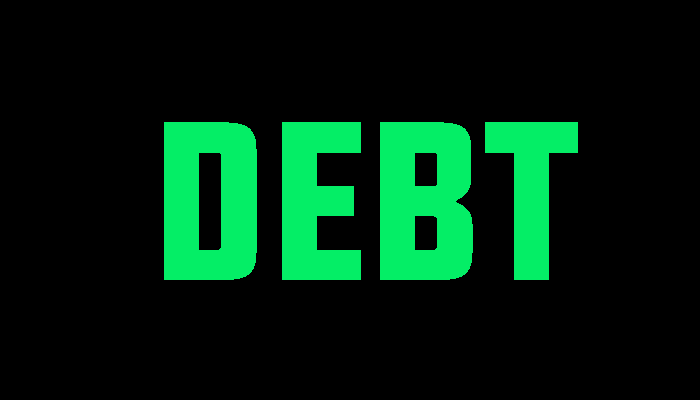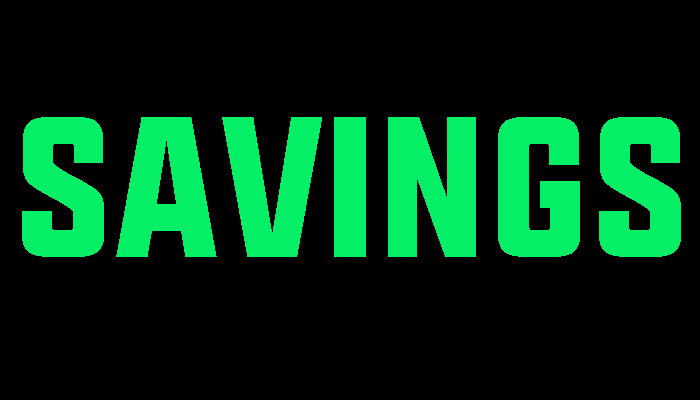How To Decide If You Should Save Or Pay Off Debt
You’ve got one personal finance expert telling you to destroy your debts before you even think of saving your cash, while another berates you for not having an emergency fund and a maxed out 401(k).
Ideally, you could do both, but you’d need to effectively double your income today.
And so, many people are utterly paralyzed by analysis and information overload when it comes to deciding which one to pay off first. Such bewilderment leaves them floundering, unable to decide on either.
Thus, they never make any progress.
To help remedy this advice discrepancy, we’ve decided to analyze both arguments objectively and equally so you understand each one without receiving biased advice.
In Favor Of Debt Payoff
Many personal finance experts recommend you prioritize debt payoff before you start saving for anything.
One of their arguments is interest. When you pay your lender interest, you gain no tangible benefit. However, if you refuse to pay the interest, you’ll have debt collectors knocking on your door.
It’s a lose-lose situation. You’re effectively paying your lender to stay out default.
Their point is validated even more when you consider high-interest revolving debt like credit cards.
If you don’t get rid of those balances as soon as possible, you’re just throwing wads of cash into the furnace.
The pro-debt payoff crowd has a more philosophical argument as well: debt entitles someone else to your income and assets.
Oh, you think you take home $3,000 after taxes?
Well if you have $500 of debt payments each month, then you don’t really earn that whole $3,000.
And then if you default, your lender can usually seize assets. So pro-debt payoff people would ask “is your stuff REALLY yours when you’re in debt?”
Good Or Bad Debt?
You’ve probably heard of good and bad debt before. Good debt can be used to gain something of value, almost like an investment. A mortgage is an example of good debt since houses are useful and can appreciate in value.
On the other hand, personal loans and credit cards are usually considered bad debt because they aren’t specifically used for a “good” purchase like a house or business.
Pro-debt payoff people are usually referring to bad debt; they understand that good debt is necessary for people to advance in life.
Still, they’d urge you to direct extra money towards your good debt rather than yourself once your bad debt is gone and your savings are full.
In Favor Of Saving
On the other side of this great debate are people that insist saving money is the most critical thing you can do to improve your financial situation.
Emergency Fund
Those in favor of saving first argue that it’s too risky to direct all your funds towards debt if you don’t have savings to fall back on.
For example, lets say you have only $100 in savings because you put everything towards you giant student loans.
Tomorrow, you get into a terrible car accident.
How are you going to pay the deductibles and out-of-pocket costs? If you had built an emergency fund, this wouldn’t be a problem.
But that’s not the only type of saving.
Retirement
There’s also retirement.
Pro-savers argue that compound interest trumps any savings you may experience from paying off debt early.
Here’s a mathematical example of compound interest’s power:
Assume you plan on retiring at 65. You spend ages 25-35 putting $1,000 per year into an investment account with a 5% return. You stop contributing after you hit 35.
At the end of those 10 years, your balance is $57,078.99.
Now let’s say you wait until you’re 35 to start investing and you stop at 45. Same amount of time, same contribution per year, same annual return.
You’ll have the same balance at the end of your 10 year investing period.
But the difference in your balances upon retiring will be vast.
In the 1st scenario, your balance at age 65 will be $57,078.99.
In the 2nd scenario, your balance at age 65 will be a meager $34,041.55.
Those results are exactly what pro-savers argue so vehemently.
So is there a right answer to this debate?
Cost/Benefit Analysis
There is no correct answer to this debate. You have to take the costs and benefits of each path into consideration.
In this case, cost/benefit analysis boils down to potential lifetime returns.
If your interest rates are higher than any returns you could make on reasonable investments, then you’d want to aggressively eliminate the debt to maximize returns.
And if your interest rates are lower than your potential saving/investing returns, then you’ll want to save first before going after your debt with a vengeance.
With that in mind, we’ve put together plans for each path so you know exactly what to do no matter which one your prioritize.
Your Plan To Doing Both: Debt Prioritization

Step 1: Pick Your Debt Payment Strategy
There are two common debt payoff strategies:
- High-interest focus – Pay off debt in order of interest rate, starting with the highest-interest debt.
- The Snowball Method – Pay off debt in order of size, starting with the smallest debt.
The high-interest focus is meant to minimize the money you’re “throwing into the furnace” in the form of interest.
The Snowball Method works better for some; watching even the smallest debt balance hit “0” is quite motivating. Paying off smaller debts can help people build enough momentum to carry them out of debt.
Step 2: Pay Off Each Debt Accordingly And Aggressively
When you’ve settled on your debt strategy, focus all your fire on the debt your strategy targets while making minimum payments on your other debt.
As you pay off each debt, shift over to another debt.
Keep doing this until your debt is gone.
Step 3: Build 3-6 Month Emergency Fund
You’re debt’s gone, so time to start building your emergency fund.
This fund is your “last resort”. Without it, you’re out of luck.
Because of this, you should direct every spare dollar after taxes/expenses/retirement plans to your emergency fund. It shouldn’t take all that long. You’ll be back to having fun money before you know it.
The common recommendation is at least 3 months. That works pretty well if you’re single/have no family relying on you.
If you have dependents, bump that up to 6 months regardless of what your monthly living expenses actually are. More dependents means a higher chance that you’ll need to use that emergency fund.
Why prioritize the emergency fund over retirement investing? What about compound interest?
Well, if you have no emergency fund and something happens, you’ll be right back in an ocean of debt.
Step 4: Match Your 401(k) Employer Match (And Other Retirement Stuff)
Finally, you’re in the clear to start saving for retirement.
You’ll first want to increase your 401(k) contribution up to your employer’s match if they offer one. It’s free money, so there’s no real benefit to refraining from meeting your employer’s match.
If they don’t offer a match, look into other retirement accounts and compare them to your 401(k). You’ll want to speak to a financial advisor to determine if you should stick with the 401(k) or open a separate plan.
Either way, 401(k) contributions take less out of your monthly pay than you think. You’ll still have plenty of money to spare for the next steps.
Your Plan To Doing Both: Savings Prioritization

Step 1: Temporarily Set All Debt Payments To The Minimum Payment
When you’re focusing on savings, you want to slash as many expenses as you can without killing your standard of living. That means paying just enough to keep collections at bay.
Simplify this by setting up auto pay so you don’t even have to think about your debt payments.
Step 2: Match Your 401(k) Employer Match (And Other Retirement Stuff)
Next, you’ll want to increase your 401(k) contribution up to your employer’s match if they offer one.
If they don’t offer a match, take the same action as in the debt payoff plan.
Don’t start investing in other assets until you have an emergency fund, though.
Step 3: Build 3-6 Month Emergency Fund
With your debt on minimum autopilot and your 401(k) paying you free money, let’s build that emergency fund.
You may be wondering why you do this after you 401(k) in this plan but not the debt payoff plan.
That’s simply because you can do both simultaneously and instantly in this plan.
The assumption in the previous plan is you’re not saving or investing at all while you focus on your debt. In that case, an emergency fund trumps your retirement investing. No emergency fund means you’ll go right back into massive debt.
Step 4: Pay Off Debt
Now that you’ve got your 401(k) on autopilot and a hefty emergency fund, go after your debt like there’s no tomorrow.
The same debt payoff strategies can be applied here as well. Pick which one works best for you and get after it!














































